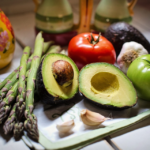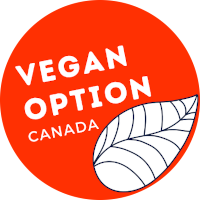
Petition: Establishment of Vegan Meal Option in Public Cafeteria in Manitoba
To the Legislative Assembly of Manitoba

- The newly-released revised version of Canada’s Food Guide encourages Canadians to focus on choosing plant-based sources of protein as well as foods that contain mostly unsaturated fat (as opposed to foods that contain mostly saturated fat). Fortified plant-based milk is also mentioned as a healthy option.
- A vegan diet has been proven to lower the risk of heart disease, cancer and type 2 diabetes.
- According to Dietitians of Canada, “Vegans have lower rates of heart disease, diabetes and certain types of cancer than non-vegans. Vegans also have lower blood pressure levels than both meat-eaters and vegetarians and are less likely to be overweight.”
- A healthy eating pattern is important to help children and adults feel good, maintain their health and meet their nutritional needs.
- It has been proven that children can learn better while eating the right kinds of foods by keeping their blood sugar levels regular.
- People who follow a healthy diet do not get sick as often.
- A vegan diet is the best way to reduce our ecological footprint.
- In recent years, many Canadians have been choosing a plant-based diet or vegan lifestyle for a variety of reasons, such as to reduce their environmental footprint, to protect animals, and to improve their own health.
- When there are no vegan options available in public institutions such as hospitals, schools, and prisons, children and adults who lead a vegan lifestyle are forced to not eat at all or to eat an incomplete meal (such as a plain salad or a piece of bread). In some cases, they may feel forced to choose to eat a non-vegan meal. Either way, this situation is detrimental to their physical and psychological well-being, a violation of their rights, and harmful to animals and the environment.
- We, the public, can all benefit from having vegan options available to us in public institutions such as schools, daycares, seniors’ homes, hospitals, prisons and universities.
- Veganism is considered a creed and a lifestyle. Our human right is violated under the Charter of Rights and Freedoms when we are not presented with a vegan option in a public institution. We have the right to eat and to the right to live in accordance with our beliefs.
- In Portugal, a strict vegan option is required to provided in all public canteens, including schools, universities, prisons and hospitals.
We, the undersigned, citizens of Manitoba, call upon the Government of Manitoba to require public canteens under provincial jurisdiction to provide a vegan option.
Dernières Signatures
| 582 | Kirstin S. | Oct 18, 2022 |
| 581 | Victoria S. | May 27, 2022 |
| 580 | Akhil A. | Apr 16, 2022 |
| 579 | Manisha L. | Apr 16, 2022 |
| 578 | Ayesha J. | Apr 15, 2022 |
| 577 | Mirella I. | Mar 23, 2022 |
| 576 | Sonia E. | Jan 10, 2022 |
| 575 | Melanie H. | Dec 09, 2021 |
| 574 | Kara L. | Dec 09, 2021 |
| 573 | Georgette L. | Dec 09, 2021 |
| 572 | Cheryl H. | Dec 08, 2021 |
| 571 | Melissa O. | Dec 08, 2021 |
| 570 | Trish G. | Dec 08, 2021 |
| 569 | Nicole T. | Dec 08, 2021 |
| 568 | Carlyn H. | Dec 08, 2021 |
| 567 | Pam N. | Dec 08, 2021 |
| 566 | Katherine Krystal G. | Dec 08, 2021 |
| 565 | Julie S. | Dec 08, 2021 |
| 564 | Joshua L. | Jan 10, 2021 |
| 563 | Michael R. | Dec 19, 2020 |
| 562 | OYKU B. | Jun 26, 2020 |
| 561 | Maureen M. | Jun 26, 2020 |
| 560 | Natalia A. | Apr 16, 2020 |
| 559 | Jasmine W. | Dec 28, 2019 |
| 558 | Christy A. | Dec 22, 2019 |
| 557 | Sheilah R. | Dec 21, 2019 |
| 556 | TERRI M. | Dec 21, 2019 |
| 555 | LISA S. | Dec 21, 2019 |
| 554 | CLORA B. | Dec 21, 2019 |
| 553 | COLLEEN W. | Dec 21, 2019 |
| 552 | SUE D. | Dec 21, 2019 |
| 551 | BRANDI V. | Dec 21, 2019 |
| 550 | JUDITH H. | Dec 21, 2019 |
| 549 | DAN G. | Dec 21, 2019 |
| 548 | BARNEY G. | Dec 17, 2019 |
| 547 | NERISSA S. | Dec 17, 2019 |
| 546 | ERICA W. | Dec 17, 2019 |
| 545 | ALY B. | Dec 17, 2019 |
| 544 | JASON H. | Dec 17, 2019 |
| 543 | AMANDA L. | Dec 17, 2019 |
| 542 | JP L. | Dec 17, 2019 |
| 541 | JANELLE L. | Dec 17, 2019 |
| 540 | NEIL D. | Dec 17, 2019 |
| 539 | OLIVIA S. | Dec 17, 2019 |
| 538 | JEN W. | Dec 17, 2019 |
| 537 | JEN P. | Dec 17, 2019 |
| 536 | SHAWN C. | Dec 17, 2019 |
| 535 | AMBER H. | Dec 17, 2019 |
| 534 | MARY GRACE C. | Dec 17, 2019 |
| 533 | ASHLEY T. | Dec 17, 2019 |
| << < > >> | ||
If you want to find out more about this project and how you can help, feel free to contact Carolina Valenzuela , the coordinator of Vegan Options Manitoba. Find us on Facebook, at Vegan Option Manitoba.

